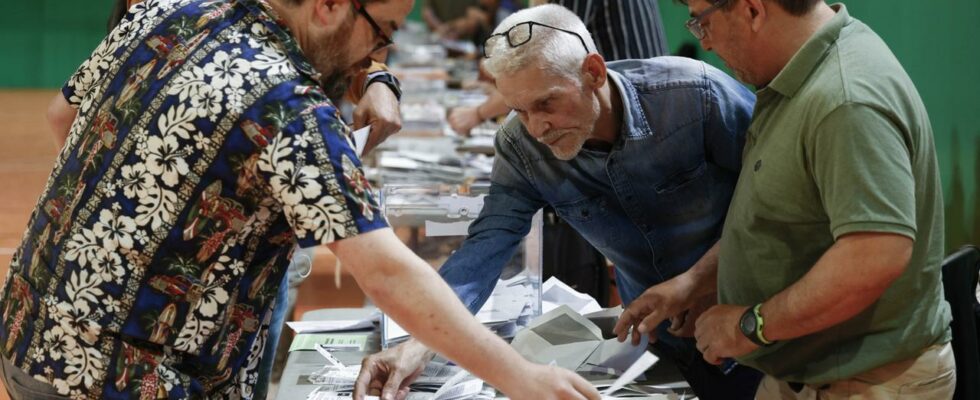In the regional elections in Catalonia, the separatist parties have lost their absolute majority in parliament. According to forecasts, the big winner is Prime Minister Sánchez’s Socialist Party.
According to projections, the separatist parties have lost their parliamentary majority in the early parliamentary elections in the Spanish region of Catalonia. After around 90 percent of the votes were counted, the four parties that support Catalonia’s independence won 62 seats. 68 would be necessary.
Forecasts based on post-election polls published immediately after the polls closed had initially predicted a majority for the separatists.
Socialists are improving significantly
The big winner of Sunday’s election was the socialist party PSC, led by former Health Minister Salvador Illa, which gained nine seats and became by far the strongest force. According to projections by the TV broadcaster RTVE, there are now 42 seats instead of the previous 33. The PSC had already become the strongest force in the previous election in 2021, but was unable to forge a government majority.
Second place is the Junts party of former head of government and separatist Carles Puigdemont with 35 seats. She was able to gain three seats. However, the previous head of government, Pere Aragonès, who was also separatist, and his left-wing party ERC fell from 33 seats to just 20.
Spain’s largest opposition party, the conservative PP, which has traditionally had a difficult time in Catalonia, improved significantly by twelve seats to now 15. The right-wing populist Vox maintained its result with eleven seats. The left-wing alternative alliance Comuns-Sumar, which governs in Madrid together with the Socialists, got six seats (minus 2), the left-wing separatist CUP fell to four seats (minus 5). The new, far-right separatist Aliança Catalana is sending two representatives to parliament in Barcelona.
Given the majority, it is questionable this time how quickly a new government can be formed. Illa would also be dependent on the support of other parties. The result is likely to give Socialist Prime Minister Pedro Sánchez a boost for the EU elections in June.
Puigdemont campaigned from exile
Catalan separatists have had a majority in the regional parliament for more than a decade, but polls show that support for them has waned. Puigdemont was the leader of the rich, economically strong region’s secession effort from Spain in 2017. Despite resistance from the then conservative central government in Madrid and a court ban, a referendum was held, plunging Spain into its worst political crisis since the end of the Franco dictatorship in the 1970s.
Puigdemont fled into exile to escape a Spanish arrest warrant for misuse of public funds, but remained active in regional politics, running junts via Catalunya from Belgium. Now he hopes to return home to Catalonia, which is now within reach as a result of an amnesty law for Catalan independence supporters. The Spanish Parliament is scheduled to finally vote on Prime Minister Pedro Sánchez’s law this month – despite bitter resistance from right-wing and ultra-right parties.

